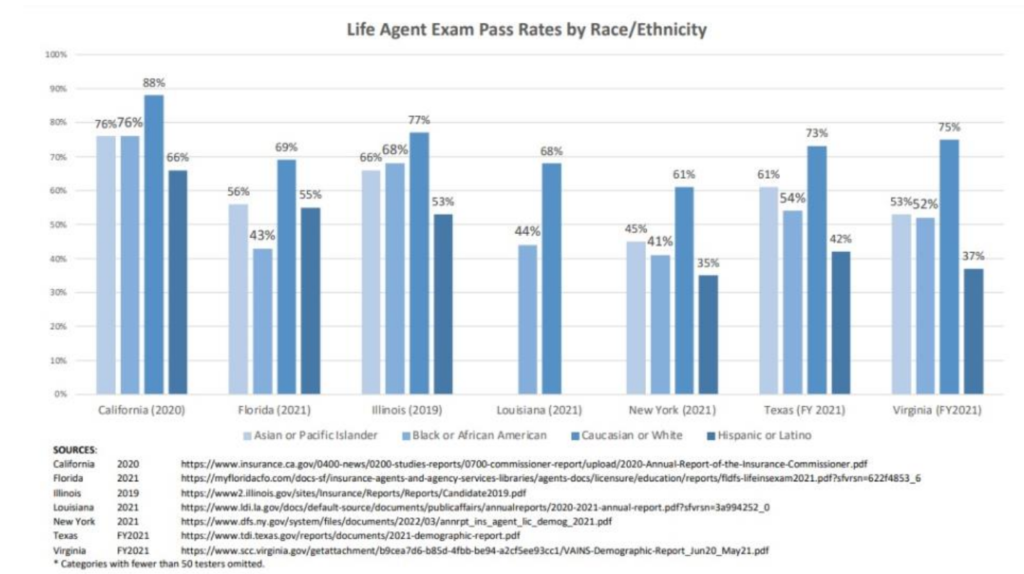Graphic:

Excerpt:
There have been recent efforts by the NAIC to report on the steps exam vendors have taken to mitigate
cultural bias in producer licensing exams; however, based on state-level data, this issue deserves closer
attention.
There are only seven states that annually prepare and publish licensing exam pass rates by
demographic, including race/ethnicity. For more than a decade, these reports have routinely shown
Caucasian/white candidates scoring higher than other demographic groups across nearly all lines.
When comparing Life Insurance Exam Pass Rates by Race/Ethnicity, an alarming trend appears. It’s clear
that non-Caucasians or non-white demographics are not efficiently making it through the licensing
process. This clearly suggests licensing exams warrant more scrutiny, particularly to ensure these tests
are not screening diversity from the industry.
Author(s): ACLI, NAIFA, Finseca
Publication Date: Sept 2022
Publication Site: ACLI